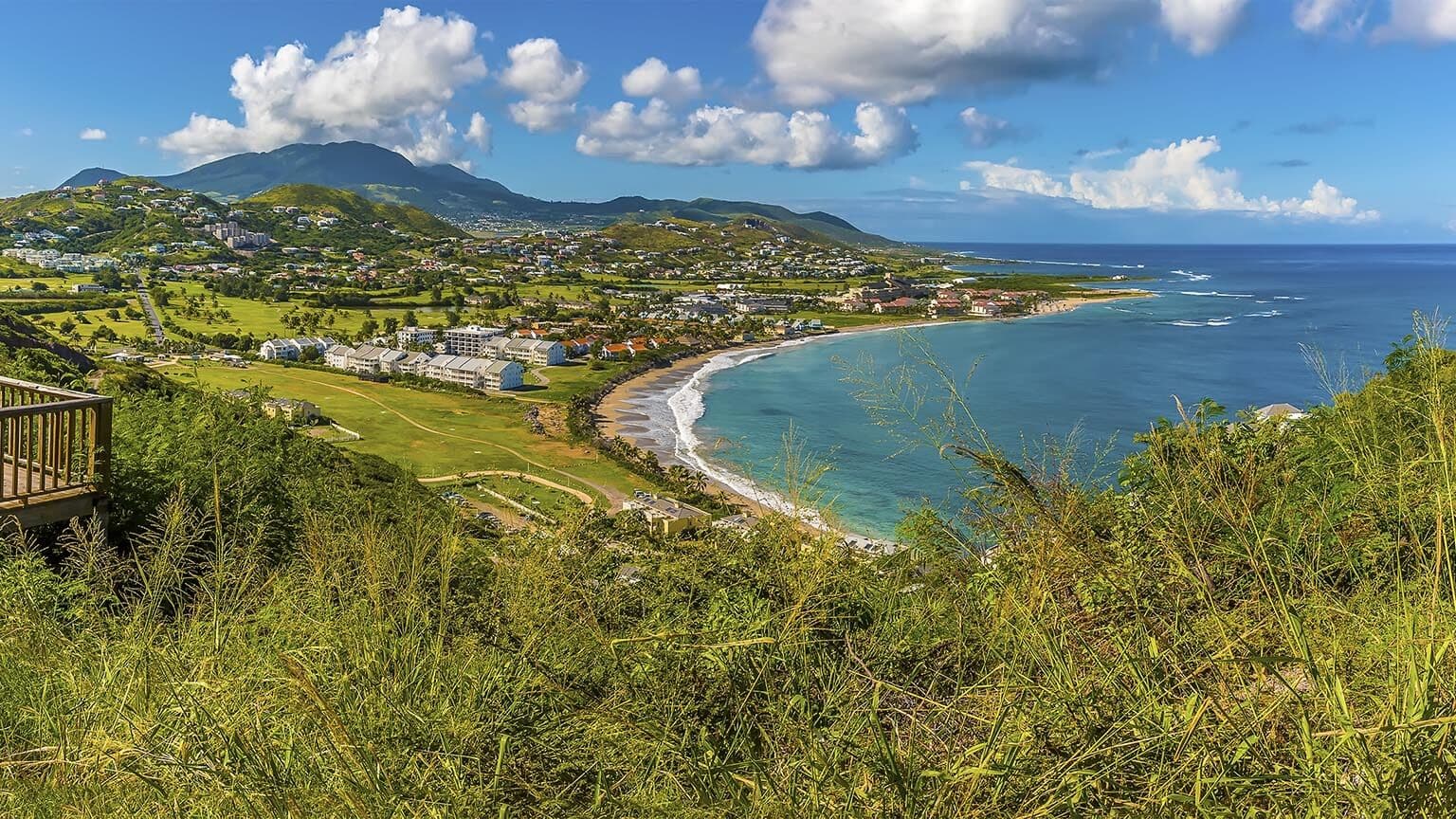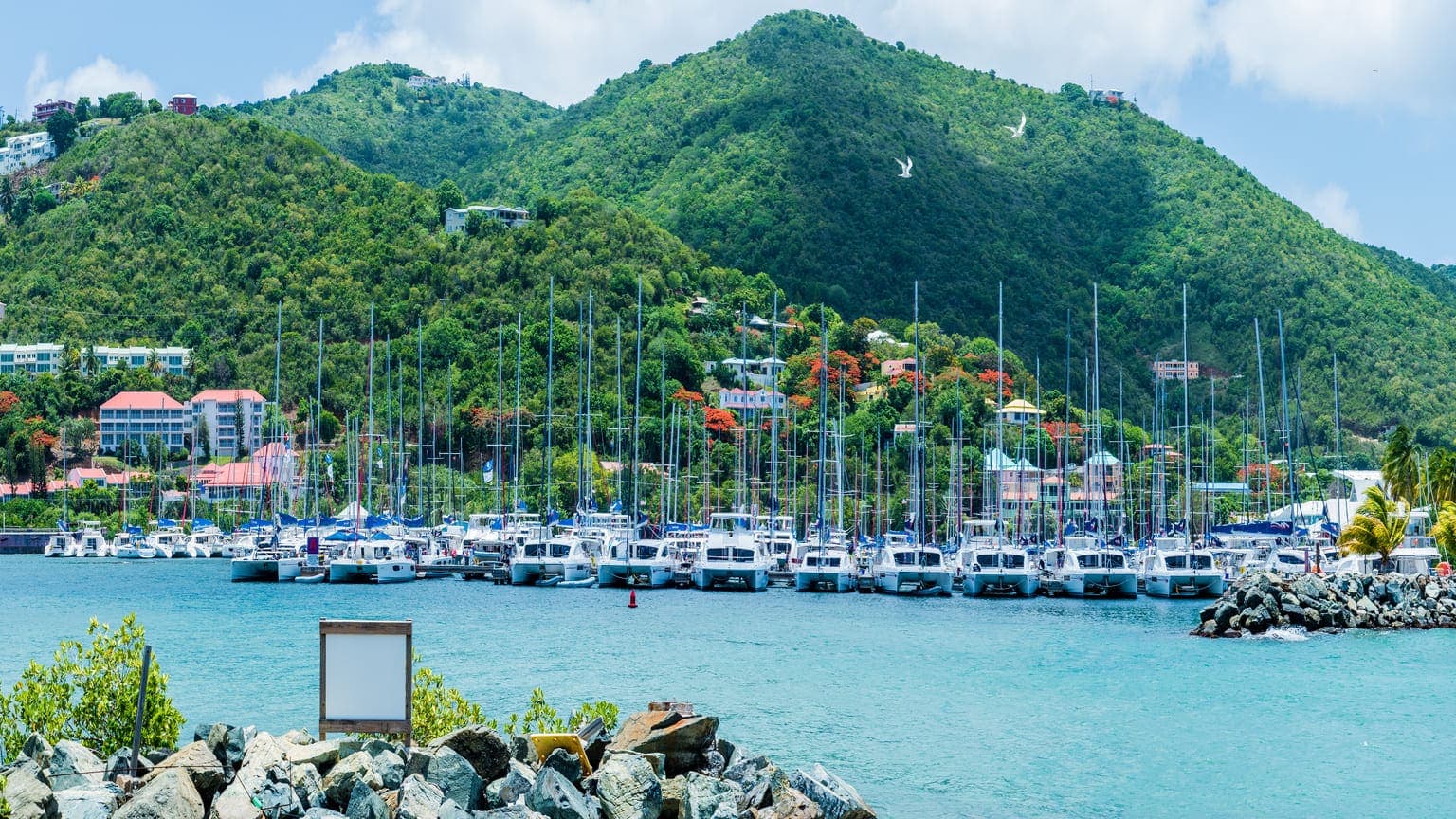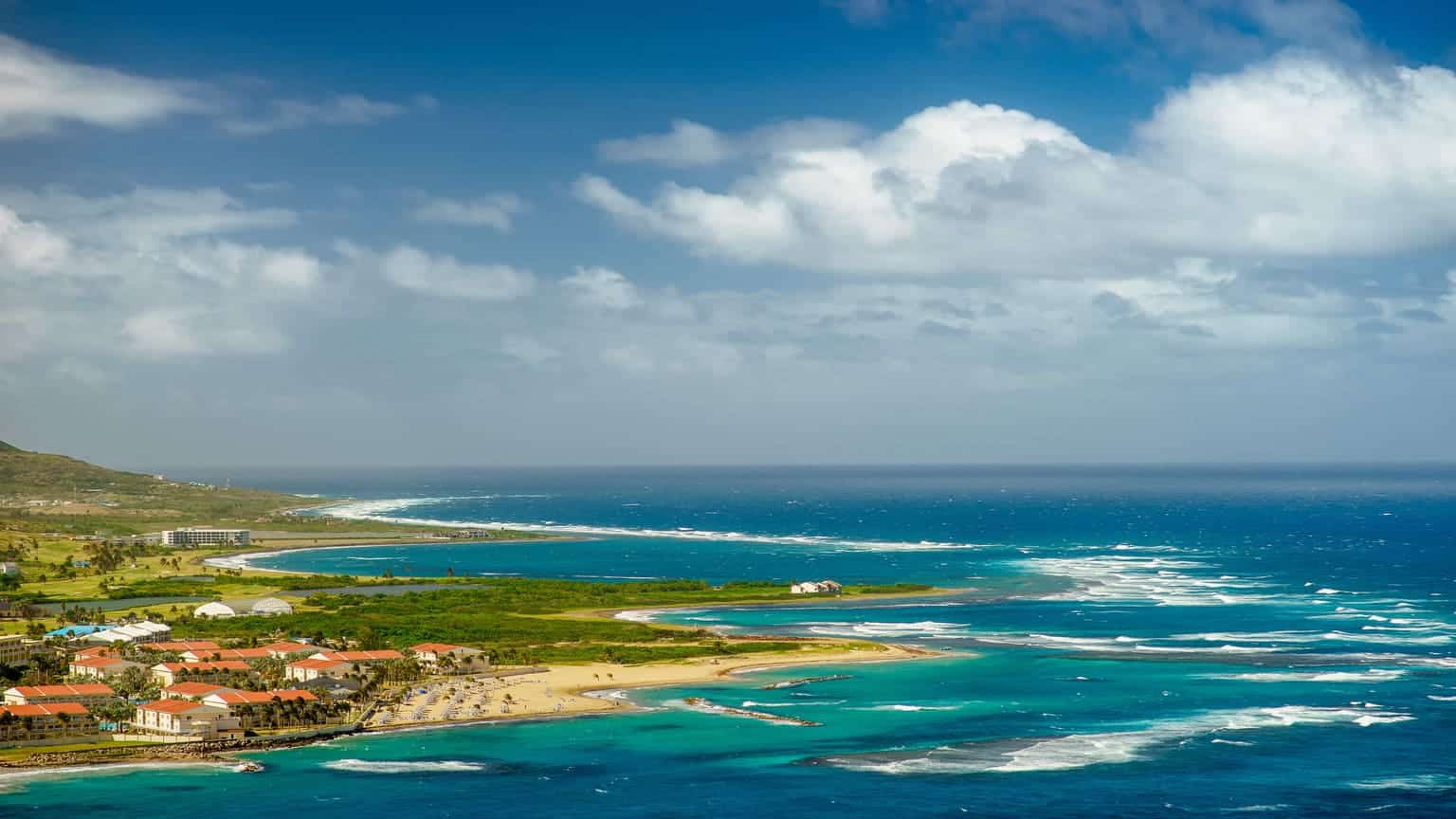Summary
Cosmopolitans with St Kitts and Nevis citizenship enjoy visa-free access to most destinations worldwide, have an opportunity to obtain a long-term visa to the United States, and get other benefits.
Along with the rights, there are also obligations. For example, to comply with the rules of the citizenship program if the foreigner became a St Kitts and Nevis citizen by investment.
Learn more about the opportunities a St Kitts and Nevis passport gives to its holders and how an investor can maintain the status of a citizen.
9 rights and opportunities of St Kitts and Nevis passport holders
A St Kitts and Nevis passport obtained by investment is the same as a passport obtained by birthright. With a St Kitts and Nevis passport, an investor can get a long-term US tourist visa, optimise taxes, and freely cross the borders of other countries.
The St Kitts and Nevis Constitution guarantees citizens' rights and freedoms. The document provides the fundamental rights to freedom of movement, property ownership, freedom of speech, and legal protection.
1. Travelling without visas. St Kitts and Nevis citizens can visit most destinations without visas, including European countries, Hong Kong, and Singapore.
2. Obtaining a US tourist visa for 10 years. Citizens of St Kitts and Nevis can obtain a B-1/B-2 Visitor Visa to the United States for 10 years. Visa holders can spend up to 180 days a year in the United States visiting friends and relatives, travelling around the country, being treated at local clinics, participating in conferences or holding business meetings.
3. Getting benefits in the UK. St Kitts and Nevis is a former British colony that gained independence in 1983. The monarch of the United Kingdom still rules the country, and the Governor-General represents the country on the island.
St Kitts and Nevis is a member of the Commonwealth of Nations, so the country’s citizens can spend up to 180 days in a row in the UK. In addition, citizens of St Kitts and Nevis have access to preferential conditions for studying at British universities; for example, they can apply for Commonwealth Scholarships.
The Commonwealth is one of the world’s oldest political associations of states. Its history goes back to the British Empire, when the UK ruled countries worldwide.
4. Enjoying benefits in the Caribbean. St Kitts and Nevis is a member of the Organisation of the Eastern Caribbean States and the Caribbean Community, CARICOM. Citizens of the country can come to any state of these associations without a visa.
CARICOM is a duty-free zone, so doing business in the region can be profitable.
5. Owning real estate. St Kitts and Nevis citizens can buy and sell properties on the islands.
Investors obtaining citizenship through the country’s investment program can buy government-approved tourist real estate and gain about 2—5% of the yearly yield as a passive income. Seven years after obtaining citizenship, they can sell a property and return the money.
Properties an investor can buy in St Kitts and Nevis and get citizenship
6. Using the services of the Caribbean and European banks. With a St Kitts and Nevis passport, an investor can open accounts and deposits in the Caribbean and use all banking services.
Depending on the country of first citizenship, it may be easier for an investor with a Caribbean passport to open accounts in Europe and the USA.
7. Tax optimisation. Saint Kitts and Nevis has no income, wealth or inheritance tax. Residents don't pay taxes on dividends, royalties and interest they earn in the country.
8. Retaining citizenship of other countries. St Kitts and Nevis legislation allows its citizens to have dual citizenship. Therefore, when becoming a citizen, the investor does not need to renounce their first passport.
9. Living in St Kitts and Nevis. The investors and their families can arrive in the country even if the borders are closed for tourists. One can come to St Kitts and Nevis for a holiday at any time. In addition, it's possible to organise a "backup plan" at St Kitts and Nevis and go to the islands in case of danger.
However, living in the Caribbean is a right, not an obligation. An investor can obtain a passport remotely without visiting St Kitts and Nevis before or after the application approval.
The inhabitants of the islands are very hospitable. They warmly welcome guests and new citizens of the country. The warm climate, sea, pleasant music, and fresh seafood contribute to rapid adaptation. However, every culture has its code and expressions that are understood only by the locals. For example:
-
Kittitians, pronounced like “Kittishin”, is how the inhabitants of the island of St Kitts call themselves;
-
Nevisians, pronounced like “Neeveeshin”, is how the inhabitants of the island of Nevis call themselves;
-
“limin” means “chilling” or “having a good time”;
-
“Me Aarmm” means “Oh, my! Really?”;
-
“donkey ears” means “a long time”;
-
“m’ain know” means “I don’t know”;
-
“picki nyehga”, pronounced like “pickee nayga” means “a child”;
-
“a Lord doh” means “what a pity”.
Obligations of St Kitts and Nevis passport holders
Obtaining citizenship by investment imposes some additional duties on the investor.
Providing reliable information is a prerequisite for participation in the citizenship by investment program. Therefore, the authenticity of documents is checked at the Due Diligence stage.
If an investor provides false information about themselves to participate in the citizenship program, the government of St Kitts and Nevis may revoke citizenship in the future.
Following the terms of the citizenship program. If an investor buys property under the St Kitts and Nevis citizenship by investment program, they undertake not to sell it for at least 7 years.
Submitting a notification about a second passport. Depending on the country's legislation regarding first citizenship, the investor may be required to submit an official notification of getting a second passport. For example, a Turkish citizen must notify the government about obtaining a second passport.
Paying taxes. Doing business in St Kitts and Nevis results in the obligation to pay taxes. The income tax rate for legal entities is 33%.
The standard VAT rate is 17%. The reduced rate is valid for the hotel and restaurant business, and a zero rate is allied to some goods.
Property tax usually ranges from 0.15 to 0.3% for buildings and 0.2 to 0.75% of the property value. And if an investor does not live in St Kitts and Nevis but gets dividends or other income from sources in the country, a 15% withholding tax is paid.
Military service. People with two passports often have to serve in the army of both states unless there is an agreement on dual citizenship. However, this does not apply to participants in investment programs. As a rule, neither investors nor their family members are required to serve in the country's army of second citizenship.
Citizenship of any country imposes on a person the obligation to comply with state law and respect the traditions and customs. Before visiting the country, we recommend learning some useful facts about St Kitts and Nevis.
Renewal of St Kitts and Nevis passport
Ten years after issuing the St Kitts and Nevis passport, an investor must replace it with a new one. Children under 16 get new St Kitts passports every five years.
Documents for a passport renewal are submitted to the immigration service.
The investor turns to a licensed agent to renew a St Kitts and Nevis passport. The procedure is remote, and you do not need to fly to the country. The investor provides:
- a valid passport;
- a certificate of naturalisation;
- a birth certificate;
- a certificate of no criminal record;
- photographs for a new passport.
Immigrant Invest lawyers fill out government forms and apply for St Kitts’s passport renewal.
The courier delivers a new St Kitts and Nevis passport to the investor’s address. The document is replaced in four weeks.
The St Kitts and Nevis passport renewal fee is $361. The investor also pays separately for legal services, bank commission, and document forwarding.
If a passport is lost, stolen, or damaged, the holder must apply for a replacement instead of a standard renewal.
In the case of passport replacement, a police report and a notarised affidavit explaining the circumstances are required in addition to the standard documents. The fee is around $500, and the processing time may take up to 2 months.
How to get St Kitts and Nevis citizenship by investment
Participation in the St Kitts and Nevis Citizenship By Investment Program is possible only with the assistance of a licensed agent.
The benefits of St Kitts and Nevis citizenship by investment are the following:
-
living in St Kitts and Nevis after obtaining citizenship is not required;
-
all data about the investor and the fact of obtaining a passport are confidential;
-
refund of investment is possible after 7 years if an investor buys a property to obtain citizenship;
-
investors obtain citizenship quickly, as all the procedures usually take 6+ months;
-
citizenship can be granted to the whole investor’s family and is hereditary.
The investor’s personal presence on the islands is not required. However, the investor must collect their citizenship documents in person in St Kitts and Nevis or at the country’s official representative offices abroad.
Requirements for applicants. An investor has to be over 18 years old and without a criminal record to participate in the citizenship program.
Together with the investor, St Kitts and Nevis citizenship is available to the following family members:
-
a spouse of the opposite sex with no criminal records;
-
children under 25, wholly financially dependent on the investor;
-
spouses’ parents over 55, entirely financially dependent on the investor.
There is no limit on the number of permitted dependants.
Investment options and expenses. Investors choose one of three options:
-
A non-refundable contribution of at least $250,000 to the state fund.
-
Buy real estate for at least $325,000.
-
Invest at least $250,000 in an Approved Public Benefit Project.
Investors transfer money to the Federal Consolidated Fund as a non-refundable contribution. The St Kitts and Nevis Government spends the fund’s resources developing healthcare, tourism, culture, and alternative energy.
The contribution amount and total expenses depend on the number of family members obtaining citizenship.
Costs for an investor contributing to the fund
Investors can buy St Kitts and Nevis government-approved property in full or share ownership. There are three different ways to buy a property depending on the property type:
-
Shares in an approved project, usually tourist residencies and luxury hotels — $325,000+.
-
Condominium units designated as Approved Private Homes — $325,000+.
-
Single-family private dwellings designated as Approved Private Homes — $600,000+.
The investor must retain ownership of the investment property for at least 7 years. In the meantime, they gain passive income of 2—5% per year. 7 years after obtaining citizenship, the property can be sold, and the invested money returned.
The property investment amount does not depend on the number of participating family members. However, the total costs increase when relatives are added to the citizenship application.
Costs for investor buying real estate in St Kitts and Nevis
The Public Benefit Option allows the government to effectively fulfil its capital investment objectives. This option suits investors interested in the following:
-
establishing an industry;
-
financing the construction of a real estate development on state-owned land;
-
building a real estate project on land that will be transferred to the state;
-
delivering significant benefits to the populace of St Kitts and Nevis;
The investor should seek approval from the Board of Governors to be recognised as an Approved Public Benefactor. Once approved, they may then propose their projects for designation as Approved Public Benefit Projects eligible under the citizenship by investment option.
Obtaining citizenship by the investor's relatives after the application approval
The spouse and other qualifying dependents can be added to the citizenship application after the investor gets the approval in principle but before fulfilling the investment condition and becoming a citizen. In this case, adding a family member costs $30,000 per dependent.
If born after the investor gets their Certificate of Registration, a child under 3 can obtain citizenship. In this case, adding such a child costs $7,500.
St Kitts and Nevis citizenship is hereditary, meaning a child under 18 born to a St Kitts and Nevis citizen can also request and be granted citizenship.
Key points about rights and duties of St Kitts and Nevis citizens
-
St Kitts and Nevis citizens can enjoy global mobility and benefits in the UK and CARICOM, own real estate, optimise taxes, and have multiple passports.
-
The duties may include providing reliable information to the authorities, following the citizenship program rules for investors, paying taxes, and military service obligations.
-
Moreover, St Kitts and Nevis citizens who are over 16 renew their passports every 10 years and every 5 years if they are under 16.
-
St Kitts and Nevis citizenship can be passed to future generations.
-
Wealthy people can become St Kitts and Nevis citizens in as little as 6 months by investing at least $250,000 in the country’s economy.
Immigrant Invest is a licensed agent for citizenship and residence by investment programs in the EU, the Caribbean, Asia, and the Middle East. Take advantage of our global 15-year expertise — schedule a meeting with our investment programs experts.


























